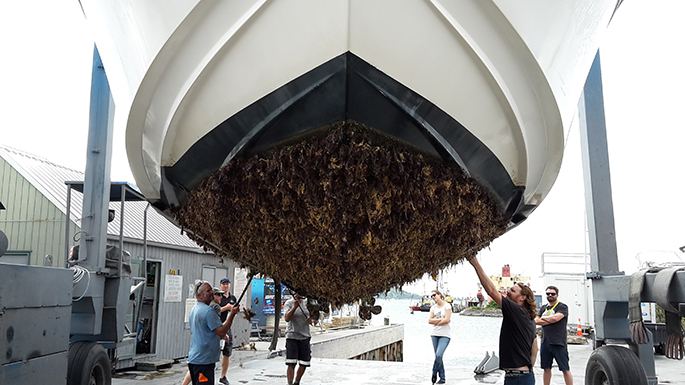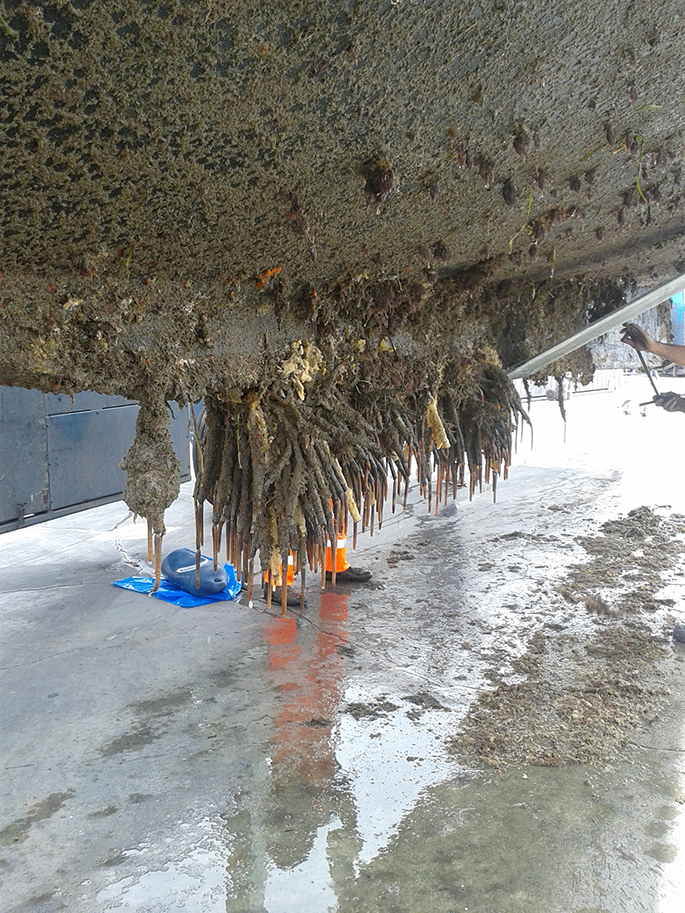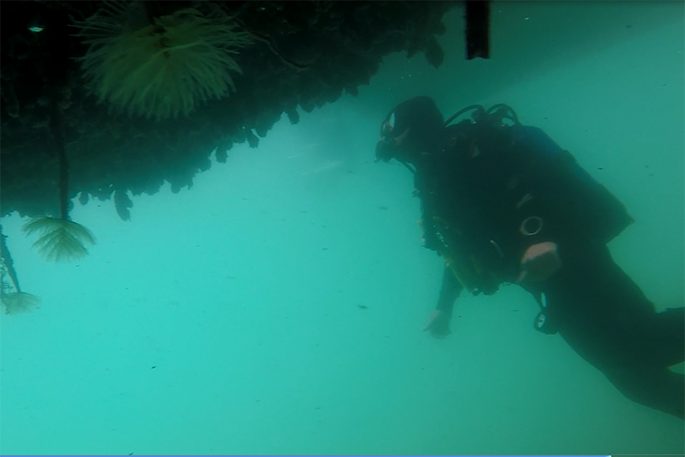As boats stream onto Tauranga Harbour this Labour Weekend, marine pest specialists will be on hand to help keep unwanted stowaways at bay.
The Saturday morning workshop will teach boat owners how to identify and avoid the kinds of pest that like to hitch a ride on hulls or infest ballast water.
“We’ll provide a ton of information and lots of photos to raise awareness but this is also a pretty hands-on, practical session,” say Bay of Plenty Regional Council biosecurity manager Greg Corbett. “We’ll be removing a vessel from the water with the travel lift and doing a complete hull check, clean and water blast. Then we’ll explain the species we’re looking at and examine areas that can get missed in the cleaning process.”
The one hour workshop, run by Waikato University specialists and the regional council’s marine biosecurity team, is part of a week-long series of biosecurity-focussed events. The week also sees the launch of the new Tauranga Moana Biosecurity Capital (TMBC), a collaboration that brings together council, iwi, government, science, education and business representatives to lead and take action towards biosecurity excellence.

“While our team is obviously very focussed on marine threats, it’s great to have the backing of this TMBC initiative and to work alongside all these local and national biosecurity experts.”
Mr Corbett says biosecurity collaboration is not new to the regional council, which has been working with the University of Waikato on marine pest surveillance and control since 2013. That partnership was launched following the discovery of invasive Mediterranean fanworm in the Bay of Plenty. Other major targets include two species of sea squirt and the Asian paddle crab.
“No-one wants to see our seafood stocks depleted or our aquaculture industry harmed and most boaties just need a bit of help to understand how to do their bit.”

What: Tauranga Moana Biosecurity Capital marine workshop
Where: Tauranga Bridge Marina
When: 10-11am, Saturday 20 October
For more information, visit marinepests.nz



0 Comments
Leave a Comment